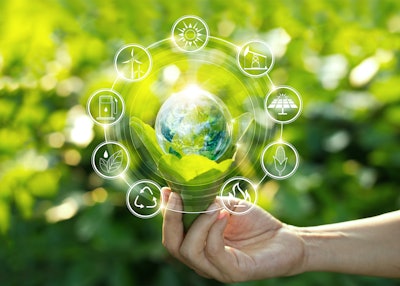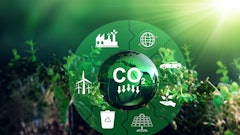
Around 730 million people—nearly 10% of the global population—are presently undernourished. The global challenge is three-fold: addressing the needs of a growing population, lifting more people out of the undernourishment cycle, and decarbonizing the agricultural sector and food system at the same time.
To feed the world sustainably by 2070 would require limiting warming to below 2°C while producing 40% more calories to feed a projected global population of around 10 billion people.
In fact, a comprehensive and sustainable transformation of the global food system could result in meeting the minimum nutritional needs of an additional 1.6 billion people by 2070. The modeling suggests that almost one in five of the extra calories produced would be supplied in regions of the world where hunger is most prevalent and could support an additional 300 million otherwise undernourished people. Over the same period, emissions from the global food system would fall by around two-thirds, aiding the global path to net zero. These achievements could also increase global gross domestic product (GDP) by $121 trillion in the same time period, according to new research presented by Deloitte.
“Investing in and supporting sustainable food systems has the potential to lift hundreds of millions of people out of malnourishment, conserve resources, and mitigate climate change. This is a critical opportunity to not only limit the adverse impacts of climate change on agricultural productivity, but also boost the global economy across industries at the same time,” says Jennifer Steinmann, Deloitte global sustainability business leader.
“The world is facing a burgeoning ‘polycrisis’ of our global food system, given that the combination of climate change, biodiversity loss, a strain on finite resources, and smaller harvests significantly hinders our ability to feed the world sustainably,” says Randy Jagt, Deloitte global future of food leader and co-author of the report. “Transforming our global food system to focus on sustainability will not only address each of these challenges but will significantly benefit populations already disproportionately impacted by food insecurity and climate change, supporting the communities that need it most.”
Key takeaways:
- Deloitte’s food systems research further underscores the risks of inaction, estimating that without intervention, unchecked climate change could cost the global economy $190 trillion between 2025 and 2070. Due to this inaction, anticipated damages from climate change could reduce the value of primary food production industries (such as crops, livestock, dairy, and fisheries) by $13 trillion in present value terms.
- Deloitte’s analysis shows that transitioning to sustainable food systems could increase global food production by 9%, equivalent to a $22 trillion increase in the output of food systems by 2070. This increased food production could feed the expected global population of almost 10 billion people and decrease food prices by 16%, making healthier diets more accessible and affordable.
- Lower-income countries could see the greatest gains, including a 12% boost in GDP and the largest increase in food consumption per capita, with an average increase in consumption in these countries of as many as 626 calories per person per day in 2070.
“The way we have historically increased food production is no longer viable. Sticking to the status quo will continue to exacerbate hunger and drive up food prices, which is not an option,” says Dr. Pradeep Philip, partner, Deloitte Australia and co-author of the report. “Feeding the world sustainably requires large-scale, fundamental change. Across every part of the global economy, we must align our goals and objectives to transform our food systems, whether through investment in agricultural research and development, protection of our land, water, and ecosystems, or continued decarbonization efforts.”
















